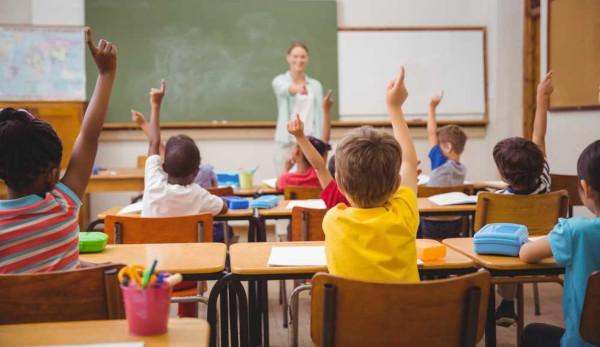education, a fundamental right for all, permeates human development through teaching and learning, aiming to develop and enhance the individual's intellectual capacity. It constitutes a unique learning process associated with school, family and social training. It can therefore be formal or informal.
It is worth emphasizing that education is not limited to instruction or the transmission of knowledge. It comprises the development of autonomy and critical thinking, improving skills and competences.
formal and informal education
formal education |
informal education |
It has official recognition and covers the school level, levels, degrees, curricula and diplomas. Knowledge is formally presented through school subjects and is mediated by an educator. |
Knowledge acquired through experience and social interaction. There is no formality of place, time or curriculum. Informal learning takes place spontaneously. |
According to the International Conferences on Adult Education (Confintea), “non-formal education is understood as the whole process of teaching and learning occurred from an educational intention, but without obtaining degrees or titles, being common in social organizations with a view to participation democratic. And informal education like that which occurs in everyday social processes, such as with the family, at work, in social and affective circles”.
schooling
School education is that which takes place in the formal scope, within the school institution. The school is an important institution that helps in social development, improving individuals' skills and competences. Furthermore, it plays a fundamental role in shaping knowledge, values and behaviors. Through school education, the subject establishes relationships and understands the form of organization of the society in which he is inserted. In the school environment, education is planned and therefore formal.
Read too:Basic Education, Philosophy and Citizenship

School education comprises formal education, carried out in the school institution and mediated by educators.
basic education
Basic education corresponds to the first level of school education in Brazil. It is divided into three levels:
Early childhood education (0-5 years)
Elementary school (6 to 14 years)
High school (15 to 17 years old)
According to the Law of Guidelines and Bases of Education (LDB), during the school period, children and adolescents they must receive the common training necessary for the exercise of citizenship and for progress in studies. later.
The municipalities will act primarily in the provision of teaching places for children in kindergarten and elementary school in the public network. It is up to the state to offer free and universal basic education. Thus, municipalities and states work together to provide elementary education. Secondary education is the responsibility of the states.
The International Standard Classification of Education (Isced) provides that basic education includes:
→ First stage: learning to read, write and basic math operations.
→ Second stage: consolidation of reading, writing, understanding of the social and historical environment.
child education
Early childhood education is the first stage of what we call basic education. Its objective is the full development (physical, psychological, intellectual and social) of children from 0 to 5 years old. This stage of education is carried out in day care centers (children aged 0 to 3 years) and in preschools. It is mandatory from the age of four, and it is the State's duty to offer it. In addition, early childhood education can also be offered in private institutions.
In 2013, the LDB was changed and started to determine that children be enrolled in schools when they turn 4 years old and no longer after 6 years old as provided for in the previous version of this law. It was also defined that the minimum annual workload for early childhood education would be 800 hours.
Elementary School
Elementary education corresponds to the second stage of basic education. Its objective is to provide the student with mastery of reading, writing and calculus, in addition to helping to understand the social, political, arts and basic values of society.
In 2006, elementary school went from eight to nine years in order to increase children's time at the school institution. Enrollment in elementary school is mandatory for children between 6 and 14 years old. Enrollment is the responsibility of families and guardians, and places must be guaranteed by the State.
High school
Secondary education has different characteristics in each country. In Brazil, it corresponds to the last stage of basic education and aims to deepen knowledge acquired in elementary school, relating them to the knowledge necessary for training for the work. Secondary education must also offer an ethical education aimed at the individual's autonomy and critical thinking. To attend high school, which lasts three years, it is mandatory that the student has completed elementary school.
education in Brazil
THE education in Brazil it is based on the Federal Constitution, being a right of all individuals. It is the responsibility of the federal government (through the Ministry of Education), states, municipalities and the Federal District. Article 205 of the Federal Constitution states that
Do not stop now... There's more after the advertising ;)
"Education, a right for all and a duty of the State and the family, will be promoted and encouraged with the collaboration of society, aiming at the full development of the person, his preparation for the exercise of citizenship and his qualification for the work."
The article foresees three basic objectives of education: to guarantee the full development of the individual, to prepare him for the exercise of citizenship and to qualify him for the job market. Education in Brazil also aims to develop the citizen with the support of the State, society and family.
Know more: Distance education: a reality in our training
According to the LDB, education in Brazil is divided into:
child education
Elementary School
High school
youth and adult education
education in the countryside
Technical education
University education
Graduate / Specialization
Master's degree
Doctorate degree
Post doctoral
Education situation in Brazil
Studies show that education in Brazil has improved in recent years. According to data provided by the federal government, most children in the country have access to basic education. However, there are still difficulties in terms of advancing education, as many children need to repeat the school year or drop out of school to work.
According to the Basic Education Development Index (Ideb), the main indicator of the quality of basic education in the country, released in September 2018, the country did not reach the goals corresponding to the final years of elementary education and education average.
In a survey on education conducted by The Economist Intelligence Unit (EIU) and Pearson International in 2013, Brazil ranks 38th in a list of 40 countries. This ranking is done through the analysis of three assessments carried out by students from 5th to 9th grade in elementary school, in which cognitive skills and school performance are considered.
Juliana Yade, PhD in Education and the director of innovation and articulation of the Airton Senna Institute, Mozart Ramos, believe that looking only at the results obtained through indexes, such as the IDEB, limits the process of teaching-learning. It is necessary to look at these results and see a way to review educational policies in order to propose improvements for basic education. It is necessary to look at the system as a whole, thinking not only about the students, but also about the teachers.
Education in Brazil is deficient, especially in the public sphere of education. It is necessary that the federal government and the state and municipal spheres invest in the sector and guarantee quality education for the population.
What is the importance of education?
Education is one of the most important means for the development of a society. It is exercised so that the individual develops their skills, adapting to society. According to the United Nations Educational, Scientific and Cultural Organization (Unesco), in a school institution, education is carried out beyond the limits of formal education, encompassing what is also learned through social interaction. Social. Through education, knowledge is produced and, thus, all spheres of a country develop.

Education goes beyond formal education in schools, also covering the family and social spheres.
Investing in education is, therefore, essential to ensure that individuals exercise their citizenship and achieve full development. A country that invests in education ends up investing in all other sectors as well. Education opens doors, develops critical thinking and guarantees the dignity of a society.
Texts on education
At the Brazil School, you will find several texts related to education. See some examples:
education and social reproduction
education and economic progress
Education in the Middle Ages
education and school culture
environmental education
Phrases about education
“We are born weak, we need strength; we are born stupid, we need judgment. Everything we don't have at birth and that we need when we grow up is given to us by education.” (Rousseau)
“No one educates anyone, just as no one educates himself: men educate themselves in communion, mediated by the world.” (Paulo Freire)
"Teaching is not transferring knowledge, but creating the possibilities for your own production or construction." (Paulo Freire)
"Educate is to sow wisely and patiently spoon." (Augusto Cury)
"School exists to train individuals prepared to survive in this society and, for that, they need science, culture, art, they need to know things, to know resolve dilemmas, have autonomy and responsibility, know their rights and duties, build their human dignity, have a positive self-image, develop cognitive abilities to critically appropriate the benefits of science and technology in favor of your work, your daily life, your growth personal." (Libanian)
By Rafaela Sousa
Graduated in Geography

